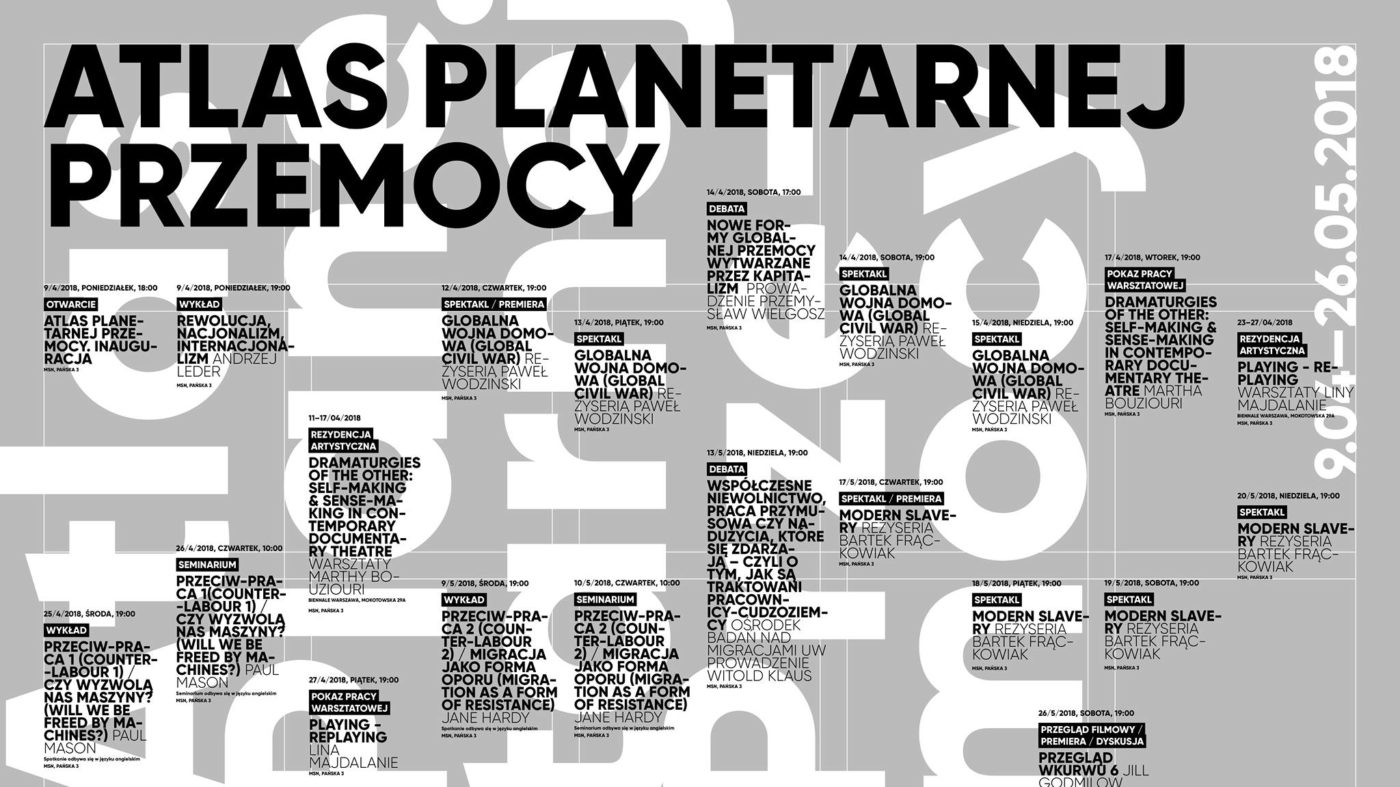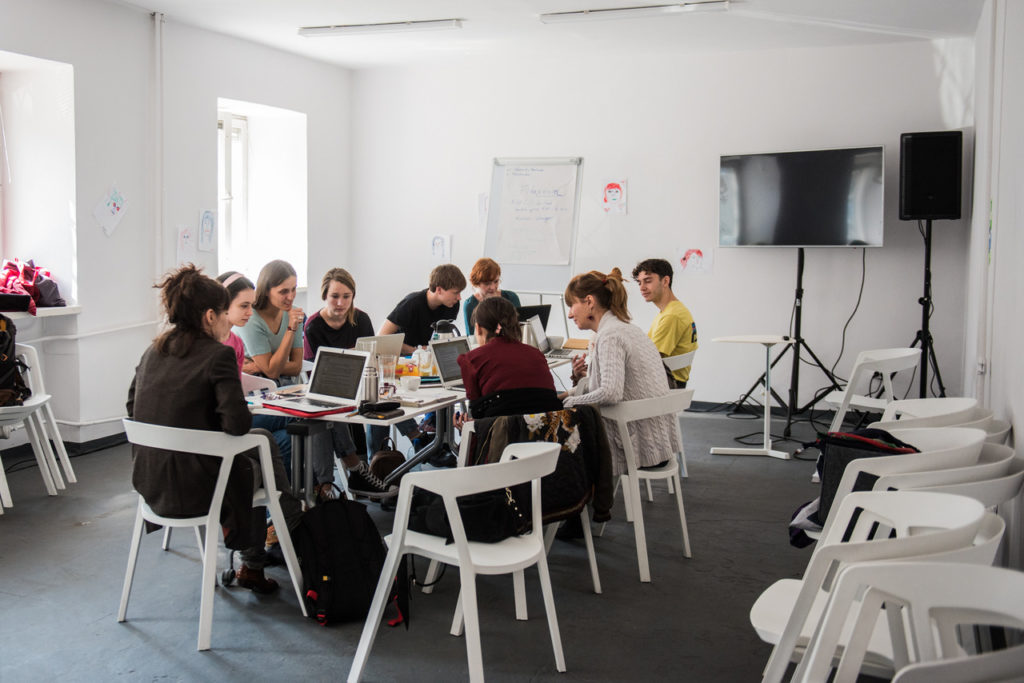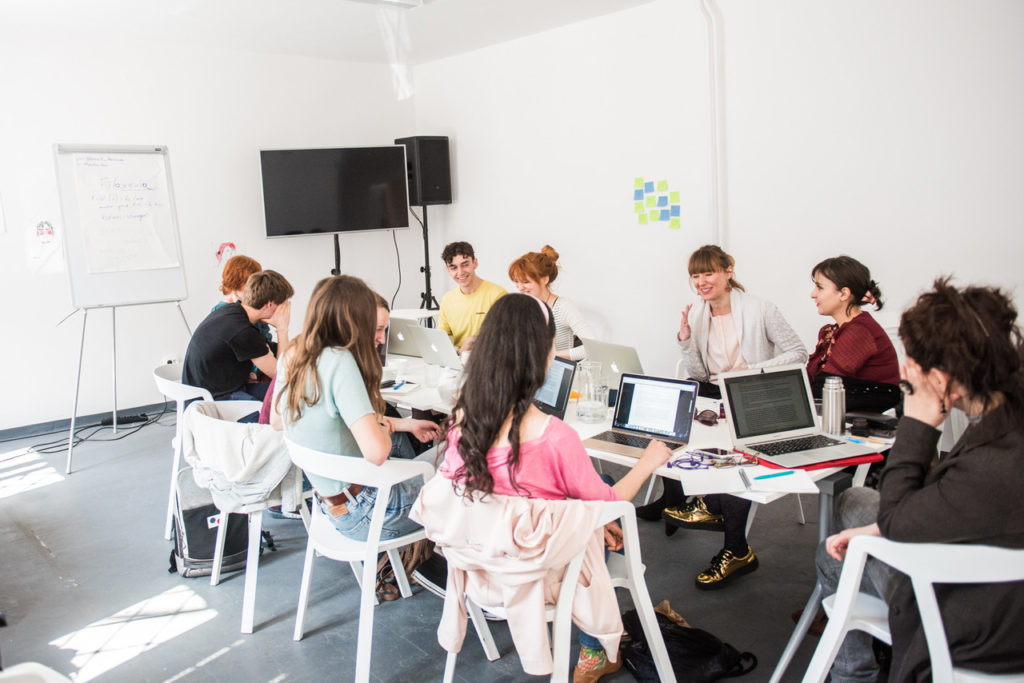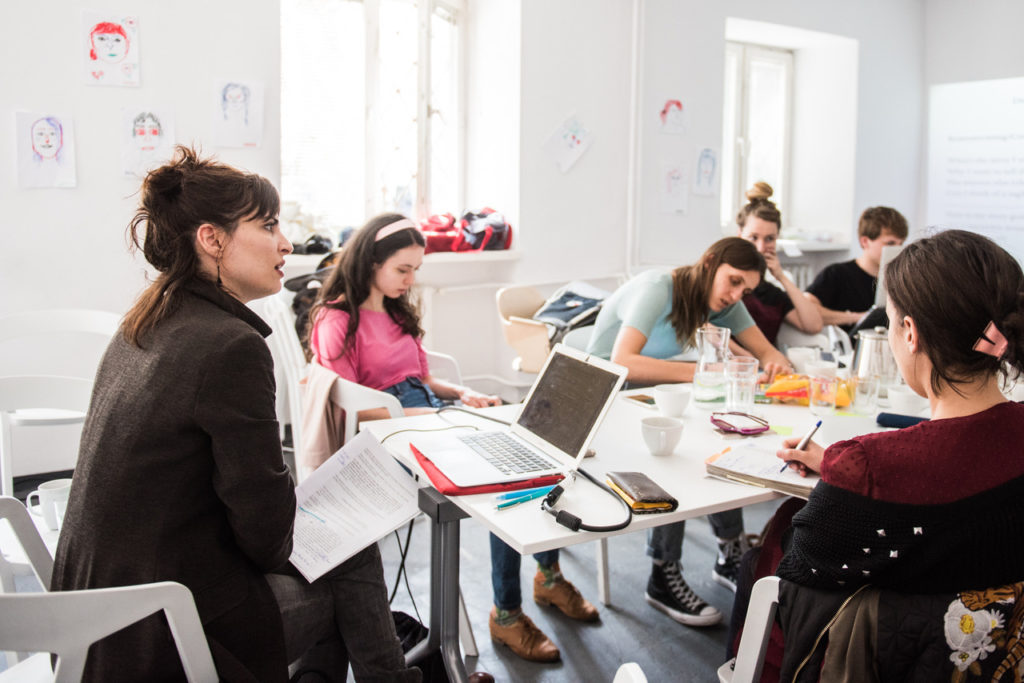Dramaturgies of the Other: Self-Making and Sense Making in Contemporary Documentary Theatre
Workshop by Martha Bouziouri
DRAMATURGIES OF THE OTHER: SELF-MAKING & SENSE-MAKING IN CONTEMPRORARY DOCUMENTARY THEATRE
The workshop is triggered by the stereotyped representation of the refugee identity in the dominant western discourse embedded in media, politics and occasionally the arts.
On one hand, we are acquainted with the “awareness of the suffering” debate in an effort to provoke a more sensitive public opinion and stimulate solidarity. Without rejecting its good intentions and provisional impact, such a narrative renders refugees a disempowered, anonymous category that depends on our empathy and support. And while it might temporarily ameliorate the dire conditions refugees go/have been through, it perpetuates a state of exception and manifests an imbalance of power between those in need of help and those in capacity of providing it. Refugees are confined to a powerlessness schema which leaves little space for them to maintain their dignity, regain their confidence and reclaim their future.
On the other hand, we get more and more accustomed to the opportunistic agendas of populist political leaders who designedly ignite and play on fears, pumping up xenophobia for political gain by warning the electorate of the consequences of their countries being invaded by massive flows of newcomers. The “refugees as dangerous others” narrative was recently ignited and legitimized by the appalling terror acts occurring at a European ground. These acts of blind hatred and extremism result into the mutation of terror-phobia into islamophobia and subsequently boost a worrying anti-refugee/anti-Muslim propaganda all across Europe.
The above “victimization – demonization” narrative dipole proliferates and establishes a misleading and, on several occasions, dangerous ground. A set of critical questions emerges: How do we challenge this narrative? How do we encourage the creation of counter narratives that highlight underrepresented, diverse and subtle identity aspects of people with a refugee background, beyond the misleading extremes of “victimhood or threat”? How do we invent a different storytelling that replaces pity, fear and prejudice with a culture of openness, understanding and intimacy? How do we harvest the fruits of the diversity tree that generously grows in our European yard to our mutual benefit?
In this context, documentary theatre potentially emerges as a space for pluralistic, self-determined and dynamic identity placements. History being in the making, this dramatic genre makes sense of the experienced shifts, challenges and transformations in an effort to create contemporary dramaturgies that break the stereotypes of the “refugee identity” and provide an inclusive, human-oriented stage for cultural pluralism and sociopolitical awareness.
WORKSHOP DESCRIPTION
The workshop draws ethical and methodological parallels between ethnographic research and contemporary documentary theatre making. It introduces an experiential, participatory approach that utilizes ethnographic data (informal conversations, interviews, field notes, audiovisual footage, public archives etc) and reinvents them in order to produce a documentary performance piece.
Prior to the workshop, each participant will engage in ethnographic research (fieldwork), which includes the approach and interaction with an acquaintance, neighbor or friend with a refugee background.
During an intensive 7-days course, the participants will share and reflect on their insights and biographical findings and will jointly work towards their dramaturgical transformation into a playscript to be publicly performed as an experimental documentary performance on identity portrayals.
List of participants:
1. Nikolett Gábri
2. Joanna Kowalska
3. Billy Morgan
4. Agnieszka Nasierowska
5. Dagmara Pasińska
6. Monika Popiel
7. Vera Popova
8. Aleksandra Reczuch
9. Piotr Urbaniec
10. Wiktoria Wojtyra
Rekrutacja
Wszyscy chętni proszeni są o przesłanie swojego CV oraz krótkiego listu motywacyjnego w języku angielskim na adres mailowy anna.galas@biennalewarszawa.pl do 16 marca.
Wyniki rekrutacji zostaną ogłoszone do 18 marca.
Liczba miejsc jest ograniczona, do udziału zostaną zaproszone osoby wybrane w procesie rekrutacyjnym.
Zaproszeni do udziału uczestnicy zobowiązani są do obecności w całych warsztatach, nie ma możliwości uczestnictwa w wybranych dniach.
Organizatorzy nie pokrywają kosztów transportu ani noclegu.
Plan pracy
FAZA PRZYGOTOWAWCZA
Lista lektur i odniesień: uczestnicy i uczestniczki otrzymają wybór powiązanych z tematem książek, sztuk i artykułów, które będą mogli przeczytać w celu lepszego zrozumienia tematyki warsztatu.
Spotkanie na Skype: uczestnicy i uczestniczki zostaną wprowadzeni w temat, metodologię i cel warsztatu oraz otrzymają wskazówki dotyczące pracy w terenie, którą powinni wykonać przed rozpoczęciem wspólnej pracy (planowane między 18 a 22 marca).
Indywidualna praca w terenie: każda uczestniczka i każdy uczestnik zidentyfikuje osobę z doświadczeniem uchodźczym i podejmie próbę zrozumienia i odtworzenia historii życia tej osoby poprzez wywiady, rozmowy, obserwację uczestniczącą i inne narzędzia etnograficzne.
Portret biograficzny: każdy uczestnik i każda uczestniczka dostarczy wstępną transkrypcję wybranej przez siebie postaci na 5 dni przed rozpoczęciem warsztatu, nakreśloną na podstawie zebranych danych.
PRACA WARSZTATOWA W WARSZAWIE
DZIEŃ 1 > środa, 11 kwietnia > 10.00-14.00 & 16.00-19.00
DZIEŃ 2 > czwartek, 12 kwietnia > 10.00-16.00
DZIEŃ 3 > piątek, 13 kwietnia > 10.00-16.00
DZIEŃ 4 > sobota, 14 kwietnia > 10.00-16.00
DZIEŃ 5 > niedziela, 15 kwietnia > 10.00-16.00 + (możliwe wydłużenie sesji)
DZIEŃ 6 > poniedziałek, 16 kwietnia > 10.00-16.00
DZIEŃ 7 > wtorek, 17 kwietnia > 12.30-17.00 & 19.00 otwarty pokaz dla publiczności
| Data | Czas | Tytuł | Miejsce | Wstęp |
|---|---|---|---|---|
|
April 11 2018 Wednesday
—
April 17 2018
Tuesday
|
Dramaturgies of the Other: Self-Making and Sense Making in Contemporary Documentary Theatre |
Registration is closed |




